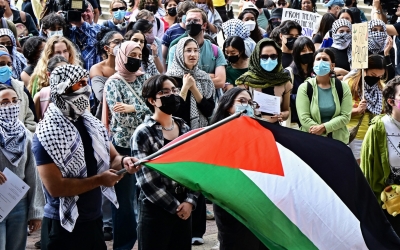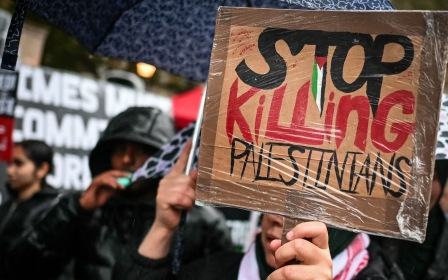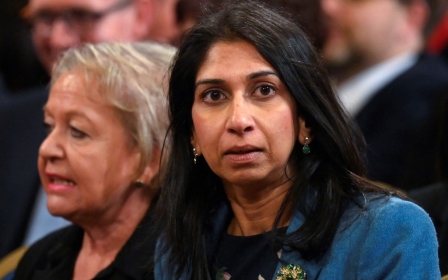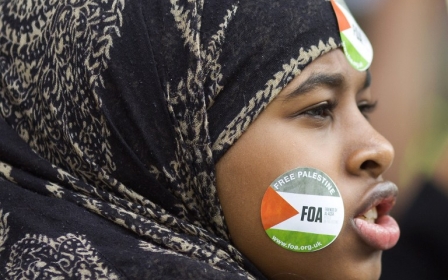Israel-Palestine war: UK schoolchildren 'at risk' from Gaza-linked Prevent referrals
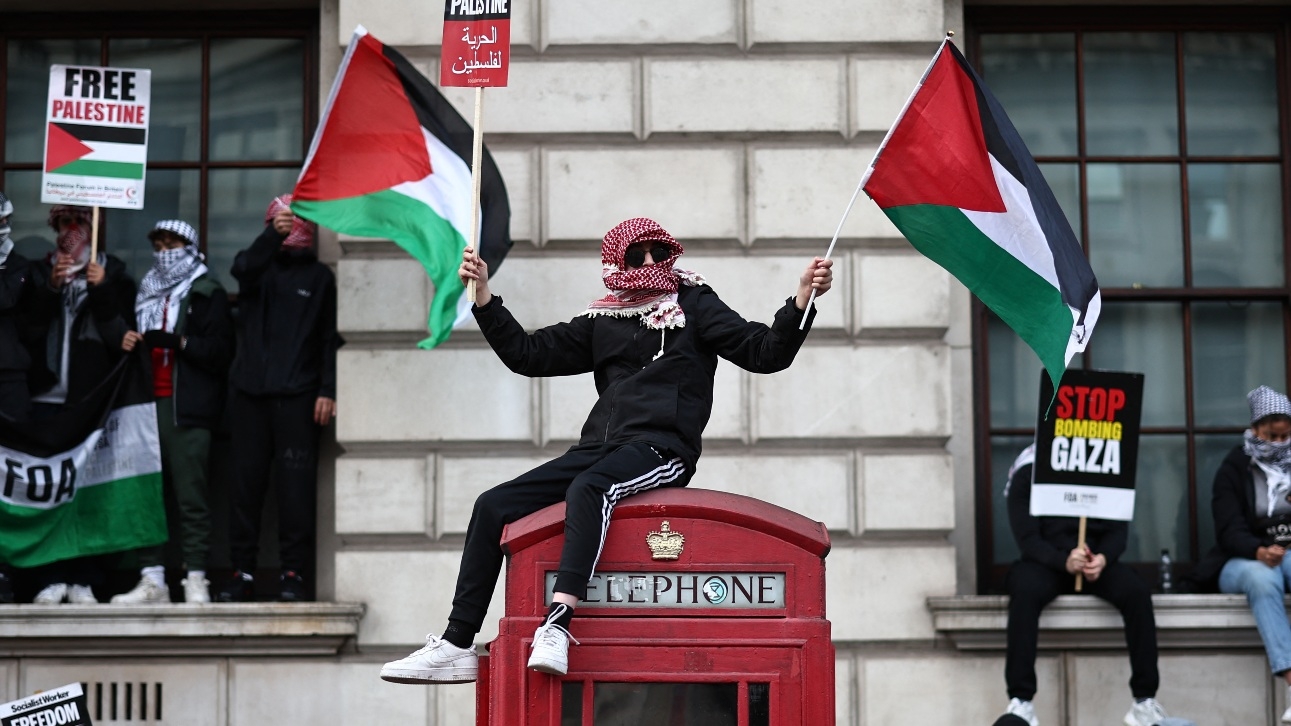
Calls for schools in the UK to report students who speak up for Palestinian rights to Prevent will put children at risk and suppress classroom discussions about the war between Israel and Hamas in Gaza, rights groups have warned.
Concerns about an increase in Palestine-related Prevent referrals come as Amnesty International on Thursday called for the contentious counter-terrorism programme to be scrapped.
In a new report, Amnesty highlighted Prevent-linked restrictions and monitoring of Palestinian activism at universities and by other public bodies as examples of violations that it said amounted to breaches of international human rights obligations.
Many people, it said, reported that they had changed their behaviour on issues deemed to be contentious, including sharing views on Palestine or apartheid in Israel, “for fear of being seen as an extremist or a terrorist sympathiser”.
Hundreds of thousands of people have marched in London in support of Palestinian rights and to call for a ceasefire in Gaza on successive recent weekends, but campaigners say they are facing an increasingly hostile environment.
Home Secretary Suella Braverman this week accused demonstrators of taking part in “hate marches” and said the UK government stood “foursquare in support of Israel”.
Braverman has previously called on police to investigate whether waving Palestinian flags or pro-Palestinian chants could amount to public order or hate crime offences.
The government links pro-Palestinian activism to an increase in reported incidents of antisemitism since the Hamas attacks in southern Israel on 7 October and subsequent escalation in Gaza.
Education ministers earlier this month wrote to schools to urge them to make Prevent referrals, warning that “events in the Middle East” could be “used as an excuse to stir up hatred in communities”.
London’s Metropolitan Police has also been ordered to step up intelligence-gathering activities and “increase their visible patrols” at schools in response to the escalation of the conflict in Gaza, it has been reported.
Follow our live blog for all the latest on the Israel-Palestine war
But campaign groups Open Rights Group and Prevent Watch said they had “serious concerns that current government advice to schools will place pupils and their teachers at risk rather than enabling discussion and proper debate of the topics”.
They said that more than 45,000 Prevent referrals had been made since a Prevent Duty was introduced in schools and other public sector bodies in 2015.
Many resulted in no further action, but still had “potential ramifications” for young people referred, said Sophia Akram, programme manager at Open Rights Group, which campaigns for freedom of privacy and free speech.
'Young people should be able to develop their ideas and have them discussed and challenged in an environment that supports them'
- Layla Aitlhadj, Prevent Watch
“They should not face the threat of being interviewed by counter-terrorism police.
“The reality is that the referral becomes a stain on their record, which could be shared between multiple databases between police forces, local authority systems and other records – possibly indefinitely. That’s a heavy charge on someone in their formative years who is simply attempting to process the calamitous world around them,” said Akram.
Prevent has been widely criticised as discriminatory against Muslims by human rights groups and monitors.
Layla Aitlhadj, director of Prevent Watch, which supports people affected by the programme, said: “Young people should be able to develop their ideas and have them discussed and challenged in an environment that supports them.
“They should not face the threat of being interviewed by counter-terrorism police. Young Muslims should not be made to feel that their voices should not be heard.”
'Thought police'
In its report on Thursday titled “This is the Thought Police”, Amnesty said the extension of Prevent into schools and other public sector settings had led to violations of rights to freedom of expression, freedom of thought and conscience, freedom of religion, freedom of peaceful assembly, and rights to equality and non-discrimination.
It said the report documented “a pattern of racial discrimination and the stigmatisation of Muslims”.
'Prevent is fundamentally incompatible with the UK’s human rights obligations'
- Sacha Deshmukh, Amnesty International chief executive
More than a third of referrals in the latest official figures were children under 15, with nearly half of them from Muslim or Asian backgrounds, Amnesty said. The report also highlighted disproportionate referrals of neurodiverse people, such as people with autism.
“Prevent is fundamentally incompatible with the UK’s human rights obligations,” said Sacha Deshmukh, Amnesty International UK’s chief executive.
“We are especially concerned about the growing number of young people, particularly minoritised, Muslim and neurodiverse people who are being referred to Prevent.
“The problems run so deep that Prevent should be abolished and replaced with greater investment in child protection and education, and safeguarding methods with a proven track record.”
'Empathy' with Palestinians
Palestinian activism has long been highlighted as a subject of interest within Prevent and counter-terrorism policing.
In 2016, Middle East Eye reported that “anti-Israel/pro-Palestinian activism” and “empathy” for Palestinians had been identified as “key risks” in a number of police counter-terrorism profiles.
MEE reported in 2017 that university staff had been told in Prevent training material that campus events involving “vocal support for Palestine” should be “risk-assessed and managed”.
Amnesty said that universities and other public bodies had cancelled room bookings or imposed restrictions on events on topics including Palestine and Islamophobia in ways that amounted to stifling the right to freedom of peaceful assembly.
It highlighted events involving the Palestine Solidarity Campaign (PSC), the UK’s largest Palestinian advocacy organisation, which had been subjected to changes of venue or gone ahead with conditions imposed such as the presence of student safety officers, additional security or neutral chairs.
Ben Jamal, director of PSC, told Amnesty that the effect of these interventions had been to “create an atmosphere suggesting that this issue is something dangerous and confined to the margins”.
“There’s a recognition that, when it comes to university spaces, we’re going to have to jump through hoops to get a meeting booked,” said Jamal.
Prevent is currently being overhauled following publication earlier this year of a controversial review of the programme by William Shawcross which was widely rejected by human rights organisations and Muslim community groups.
Shawcross called for the strategy to be focused more sharply on the perceived threat of Islamist extremism and said the Prevent Duty had been “especially effective” in schools.
Responding to Amnesty’s report, a Home Office spokesperson said: “Prevent is a vital safety net against the threat posed by terrorism. Encouraging disengagement with the programme undermines its ability to reach at-risk individuals – and is irresponsible and dangerous.”
Middle East Eye delivers independent and unrivalled coverage and analysis of the Middle East, North Africa and beyond. To learn more about republishing this content and the associated fees, please fill out this form. More about MEE can be found here.



